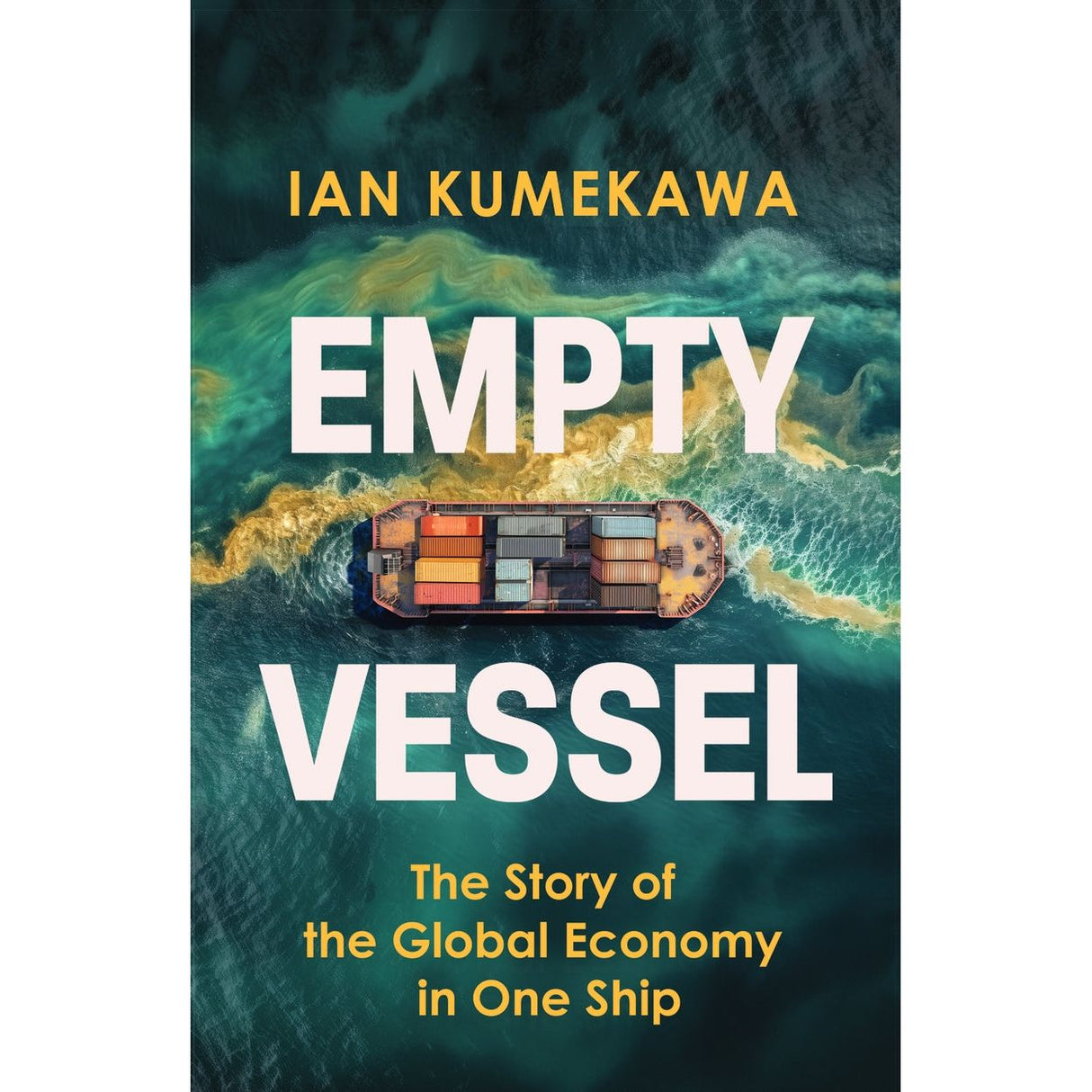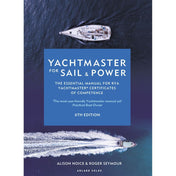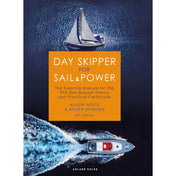Empty Vessel
| Author: | Ian Kumekawa |
|---|---|
| Edition: | 2025 |
| Format: | Hardback |
| Size: | 234 x 156 mm |
Empty Vessel is backordered and will ship as soon as it is back in stock.
Delivery Information
Delivery Information
We aim to dispatch all orders by the next business day, but we're a small business and sometimes when it's busy it may take a little bit longer. If there's going to be any delays we'll get in touch and keep you up-to-date.
Shipping is free for all orders of £50 or more!
We work with Royal Mail, DPD and DHL to offer the most convenient delivery options to our customers.
Friendly Advice
Friendly Advice
Chris is a Master Mariner and knows a thing or two about seafaring. If you need any help then don't be shy - send us an email or get in touch using the WhatsApp icon.
Easy Returns
Easy Returns
Not what you were looking for? No problem. We can accept returns of items in as-sold condition for up to 30 days (maybe a bit longer but don't tell anyone).
Just let us know and we'll sort everything out, including the shipping cost back to us.
Unfortunately this doesn't apply to Print on Demand charts as they are correct at the time of printing.
Of course if there's any faults or damage then let us know and we'll make it right!

Empty Vessel is backordered and will ship as soon as it is back in stock.
One ship, fifty years, the hidden story of globalisation
‘Thrilling, meticulous and wondrously original’ – Philippe Sands
A jaw-dropping microhistory of the global economy over the last fifty years told through the many lives of a single ship.
At 94 metres long and 9,500 deadweight tonnes, once called the Bibby Resolution, is an unremarkable hulk, crossing the oceans unnoticed. And yet, the astonishing journey of this boat can tell us the story of the modern world.
First built as a Swedish offshore oil rig in the 1970s, it went on to become a barracks for British soldiers in the Falklands War in the 1980s, a jail off New York in the 1990s, a prison in Portland in the 2000s, and accommodation for Nigerian oil workers off the coast of Africa in the 2010s. It has been called Safe Esperia, HMP The Weare, even ‘The Love Boat’. In each of its lives this empty vessel has been commanded by economic forces much larger than itself: private investment, war, mass incarceration, imperial interests, national sovereignty, inflation, booms, busts and greed.
Through its encounters with a world of island tax havens, the English court system, exploited labour forces, free banking zones or immigration politics, the ordinary boat at the heart of this story reveals our complex modern economy to us, connecting the dots of a dramatically changing world in the making, and warning us of its dangerous consequences.
Praise for Empty Vessel
“In the astonishing trajectory of a humble barge, Empty Vessel delivers an ambitious history of the global economy, linking everything from oil-drilling and offshore finance to military deployments and mass incarceration. I've rarely read a book that so deftly entwines a single, accessible story with the broad forces of globalisation. A stunningly original history, as phenomenally well-researched as it is eloquently told”
– Maya Jasanoff, author of The Dawn Watch
“Kumekawa’s tale of the barge... is an imaginative and beautifully written allegory of the decades of globalisation and the fugitive wealth it supported. What an eye-opening read!”
– Charles S. Maier, Harvard University
“A captivating story – I read it like a detective novel – and at the same time a profound contribution to the history of economic, financial and material life in the contemporary globalised world”
– Emma Rothschild, Harvard University
“Kumekawa brilliantly traces the history of one vessel to make the historical forces of globalisation concrete. A riveting and important read that shows the strange ties between tax havens and trade, prisons and ports. Offshore is more than a concept; it is a place. Kumekawa is the ideal guide to that place and its complicated inner workings”
– Heidi Tworek, University of British Columbia
“When the world went on lockdown, Ian Kumekawa took a different tack, tracking a single barge through its journey across the planet. What he discovers is the hidden material life and labour that make the global economy possible. A brilliant, unforgettable tale of our modern times”
– Eric Klinenberg, author of 2020
“An ingenious, marvellous book. Ian Kumekawa has captured the big economic stories of the past half-century in the perambulations of a single ship... a floating, steel witness to extraction, mass production, deindustrialisation, incarceration, and war. The result is a high seas picaresque through the systems that tie the modern world together”
– Henry Grabar, author of Paved Paradise
“A gripping tale – of a floating prison, the worlds of global and offshore capital in which such ships are moored, and the maritime and legal infrastructures that keep such worlds afloat, even amidst the tidal waves of economic and ecological disaster”
– Surabhi Ranganathan, University of Cambridge
“Empty Vessel, both the book and the accommodation container ship whose chequered history it unfolds, brilliantly illuminates the workings of a global offshore economy that would prefer to remain in the shadows... Kumekawa’s riveting story reveals not just its physical use and functions... but explains how the vessel became an exemplary object caught up in global skeins/schemes of capital and finance”
– John Brewer, Caltech
“A thrilling, meticulous and wondrously original journey, told with a flair and reverence for detail that captures all the joys, travails and horrors of life across time, place and water. A fabulous book”
– Philippe Sands, author of East West Street
“Kumekawa is an excellent guide to this half a century moment in the history of capitalism... The many-headed hydra of neoliberalism has found its chronicler”
– Sven Beckert, author of Empire of Cotton
“If you've ever struggled to understand what terms like ‘globalisation’ or ‘financialisation’ actually mean, Empty Vessel is the book for you”
– Grace Blakeley, author of Vulture Capitalism
“A compelling voyage... that illuminates the systemic blind spots of the late twentieth century and early twenty-first century global economy”
– Kojo Koram, author of Uncommon Wealth
“A stellar account of a complex offshore world... lucid and eye-opening... The vessel has ‘no motor, no keel, no rudder,’ he writes, but his book has undeniable drive”
– Kirkus (starred review)
“Incisive... A cleverly conceived appraisal of the international economy's troubled recent history”
– Publishers Weekly
“The Vessel is a character, and Kumekawa gives it a voice through first-hand accounts by the people who built, worked, and were incarcerated on it... offering unique insights on regions from the Caribbean to Africa”
– Booklist
About the Author
Ian Kumekawa is a historian at the Center for History and Economics at Harvard University. He is the author of The First Serious Optimist: A. C. Pigou and the Birth of Welfare Economics (2017), which was the co-winner of the Joseph J. Spengler Prize. He has taught at Harvard and MIT. He lives in Boston.
-
AuthorIan Kumekawa
-
Edition
-
Format
-
Size
-
Pages
-
ISBN
Payment & Security
Payment methods
Your payment information is processed securely. We do not store credit card details nor do we have access to your credit card information.








